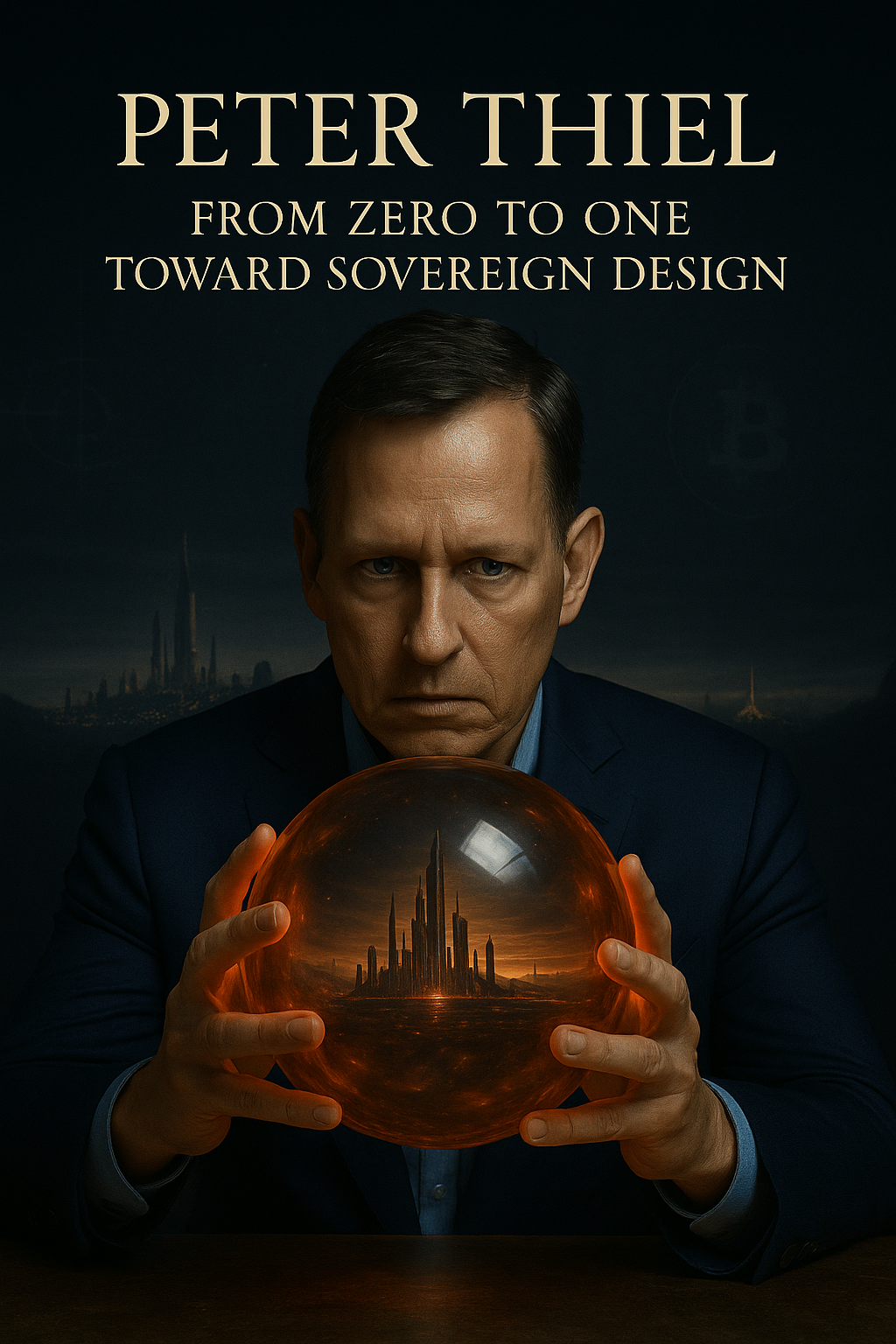
You won’t find Peter Thiel shouting from rooftops or dancing in Twitter Spaces. No TikTok wisdom drops. No livestream rants. Just methodical moves, strategic exits, and billion-dollar bets that reshape the world quietly—then unapologetically walk away from it.
Born in post-war Germany, raised in Silicon Valley before it knew it was a battlefield, Thiel didn’t build his empire on hype. He built it on first principles. Stanford-trained in law and philosophy, he combined Nietzsche with Friedman, coded it into capital, and launched the first real economic rebellion of the digital age.
PayPal was never just a payment company. It was a cryptographic trojan horse to destroy fiat friction. Alongside Musk, Levchin, and the rest of the now-mythic PayPal Mafia, Thiel helped birth a financial tool that operated outside the traditional banking system—then sold it off and moved on. Not because it failed. But because it had served its purpose.
Next? Palantir. A data intelligence platform so powerful it makes alphabet agencies sweat. Love it or hate it, it works. Thiel saw that in an age of data overload, whoever organizes the chaos, wins. He didn’t need to be the face of the algorithm. Just the one backing it.
He became the ultimate kingmaker—investing early in Facebook, LinkedIn, Stripe, SpaceX, Airbnb, and Asana. His venture fund, Founders Fund, didn’t follow trends. It made them. While VCs were still pitching the next social app, Thiel was asking founders: “What important truth do very few people agree with you on?”
This same mindset forms the core of his book From Zero to One—a modern entrepreneur’s manifesto against incrementalism. Thiel doesn’t believe in competition. He believes in monopoly through innovation. Don’t copy. Don’t iterate. Create something singular. Move from nothing to something. From zero… to one.
But what truly sets Thiel apart isn’t the capital. It’s the exit mindset. The idea that rather than fighting to change broken systems, you simply walk away and build parallel ones. He backed seasteading when others mocked it. He funded charter city projects while others clung to metropolises. He openly questioned democracy’s limitations—and had the audacity to suggest that freedom might be incompatible with mass consensus.
For many, that’s controversial. For sovereign thinkers, it’s overdue.
Thiel doesn’t want to go viral. He wants to go vertical. Deep into biotech. Into defense. Into longevity. Into space. He’s not trying to escape the world. He’s trying to redesign its scaffolding.
Call him the philosopher-king of post-libertarian capitalism. A strategist who skipped the revolution and went straight to the architecture of a new regime.
No slogans. No influencers. Just exits. And blueprints.
Peter Thiel didn’t just read The Sovereign Individual. He took notes.